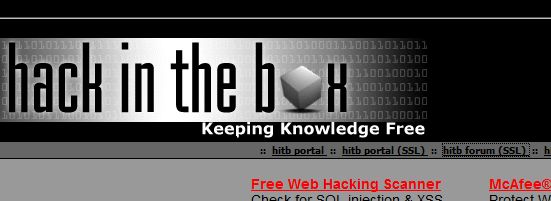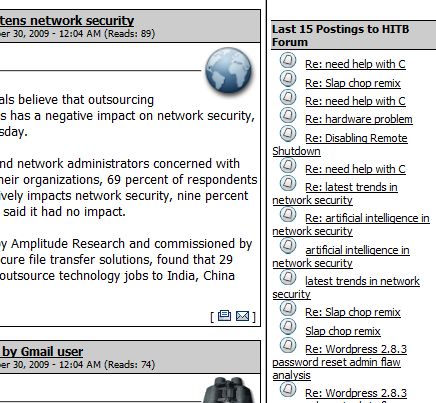Top 5 Websites To Learn How To Hack Like A Pro
Whether you’re a college student, a middle-aged networking guru or a wife and mother fascinated by the world of online games – everyone occasionally comes across a situation where some form of hacking would make life a whole lot easier.
Maybe you’ve lost the license that came with your legitimate software package that you paid for. Maybe you want to make a backup copy of your favorite DVD movie, but there’s copy-protection encoded onto the disk. Or maybe you’re just stuck on a popular online game and you want to know if there are any hacks available to level up in the game without the required effort.
Whatever your specific needs or situation – I’m not here to judge. In the field of computers and Internet technologies, just about everything is written in one programming language or another. No programmer is perfect – they all make mistakes. There are back doors, secret codes and vulnerabilities in just about any application you come across. Because of that, if you learn how to hack on your own, or just following the efforts of active hacking communities can provide you with tremendous eye-opening insight into the inner-workings of even your most “trusted” software applications.
Where You Can Go To Learn How To Hack Like a Pro
One thing that’s obvious when you visit the websites where professional hackers hang out – there’s so much about programming that even the most seasoned professional programmers don’t know. Professional hackers are an exceptional, amazing and terrible breed of individuals all packaged into one. While I write this, I realize that I am also describing over half of our readership – you know who you are! These folks take programming to an extreme that’s simply astounding when you see it in action.
While many of us write applications using all of the standard techniques that you learn in programming classes in college, these folks take programming into a realm where there are no rules. They can test all aspects of an application until they find a chink in the armor, and then exploit those vulnerabilities.
As we explore the world of hacking, it should be noted that there are two major forms of hacking – we’ll call it “white hat” and “black hat.” The “white hat” hackers call themselves “ethical hackers,” in that they find vulnerabilities and exploits only to make the programming and application communities more secure for everyone. However, there’s a whole other community of hackers who find vulnerabilities to do nothing more than exploit them as much as humanly possible. Now that you know what sort of community you may be entering, let’s get on with the list of top sites where you can learn how to hack.
#1 – CyberXtreme: Hacking and Warez
CyberXtreme is an impressive forum with a significant hacking section, but also entire sections on technology, graphics and even a tech support area. Here you’ll find cracks, secret codes, free download packages (some containing cracked software which may be illegal to download in your area, so be careful). The forum is very protective of its content, so you’ll have to register with a valid email address before you can even get a glimpse of the content that’s on the forums.
The hacking section is very detailed and, as shown above, includes not only free tools and software exploits, but if you want to learn some coding tricks from the resident hacking gurus, just enter the “Coding & Programming” forum and you’ll get your fill. Before long you’ll be writing up your own customized hacking tools!
#2 – EvilZone Hacking Forums
While the name, EvilZone, isn’t exactly the most inviting – it is easily one of the largest forum communities that you’ll find on the subject of hacking. With over 6,500 members and over 100,000 posts (and counting), this community likely has the skills and knowledge to answer any programming question you could possibly have. Just be careful about coming across as a “noob” – these guys don’t handle newcomers with kid gloves, so be careful.

You’d definitely be best off working through the programming and encyclopedia sections first, where you’ll find projects, tutorials and a lot more that will help you become educated and well-versed in hacking techniques and terminology.
#3 – Hack a Day
While I certainly don’t want to offer a nod to any blogs that may be considered competition, you really have to give credit where credit is due when it comes to a particular niche like hacking – and Hack a Day definitely offers an amazing library of information for anyone looking for specific categories like cellphones, GPS or digital cameras. You’ll find all hacks organized by category in the right column.

More than any other site, this particular “hacking” site is very much hardware based, and they redefine the meaning of the word hacking by literally hacking up electronic devices like a Gameboy or a digital camera and completely modifying it. Of course you’ll still find the occasional software hack, such as how to remove the Blackberry download limit.

While I personally don’t find the articles themselves very detailed (as an EE, I like schematics and elaborate descriptions) – but the site makes up for it with video demonstrations throughout.
#4 – Hack In The Box
If any site could be classified as the most comprehensive site to learn how to hack, this would be it. Hack In The Box is more about security and ethical hacking than anything else – and that’s more than obvious reviewing the classes and conferences listed on the main page.

The manage page is an informational portal that includes information from all other areas, including recent forum posts, conference updates, E-zine and news articles and a lot more. To be honest, there’s so much information stuffed on the main page that it’s almost overwhelming.

There’s a lot of material available, but if you’ve so interested in learning how to hack that you wouldn’t mind paying to attend a class or a conference – then this is the place to do it.
#5 – Hack This Site!
As always, saving the best for last – I’d like to introduce Hack This Site! This website is one of the coolest, free programmer training sites where you can learn how to hack accepting one of the challenges.

The site designers offer various “missions,” where you need to figure out the vulnerability of a site and then attempt to use your new-found hacking skills (you’ve carefully studied all of the articles on the site, right?) to hack the web page. Missions include Basic, Realistic, Application, Programming and many others.

If you’re able to figure out how to properly hack any of the most difficult missions on this site, then you’ve definitely earned the title of professional hacker.
Have you ever tried any of the tips offered at any of these websites and do they work? Do you have any good resources of your own for readers to learn how to hack like the pros? Share your insight in the comments section below